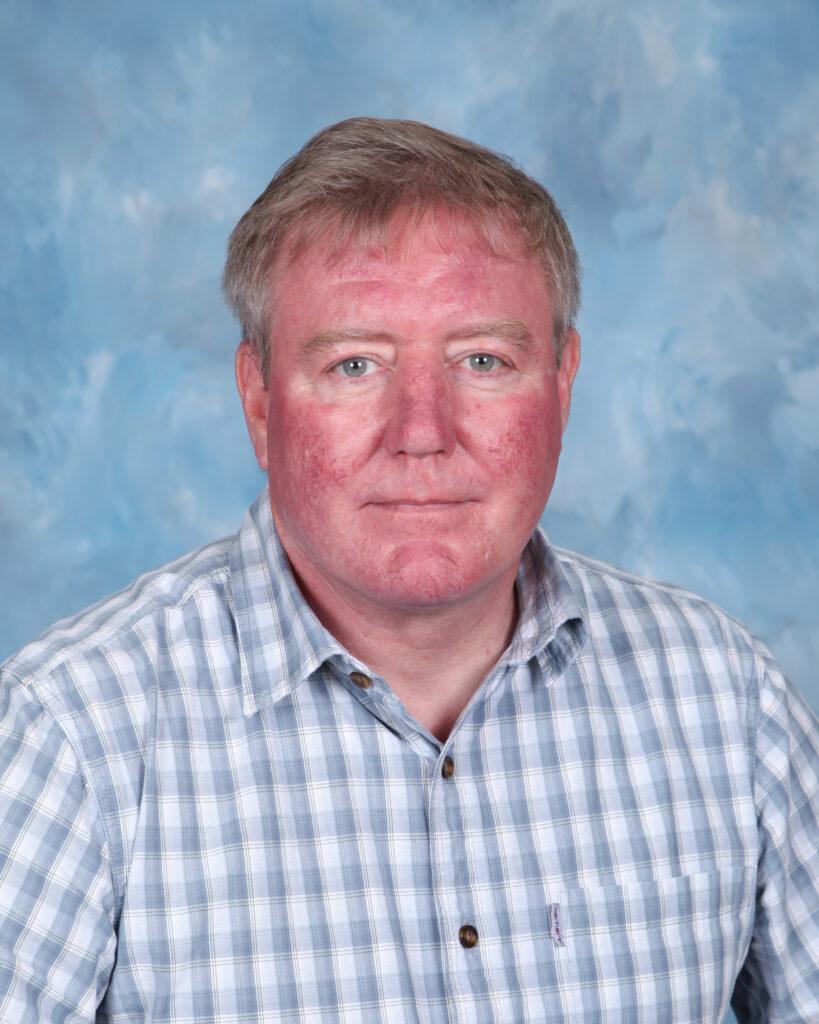Two U.S. F-4 Phantoms flew unusually low over the surrounding rice fields, afterburners blazing behind them.
Disguised as a fishing boat, a North Korean spy vessel was approached by a South Korean patrol boat. The spy boat, about to be searched, opened fire and tried to escape.
“They scrambled the jets to try to sink it,” Dwyer said. “It happened during a time when North Korea was digging huge tunnels underneath the demilitarized zone from North to South.”
Today, photographs of Dwyer’s experience in the army hang in his classroom, along with his extensive collections of Coca-Cola bottles and vintage movie posters.
Dwyer said he didn’t really want to serve in the military, but after flunking out of high school in the middle of junior year, he says the military was the best available option to him. His first posting in 1978 was to the Assistant Chiefs of Staff, G2, Division Intelligence, Directorate of Security at Fort Lewis, Wash., now known as Joint Base Lewis-McChord. He spent most of his time completing deployment training and war game exercises.
“In the military, you are taught that failure is not an option, and so you practice a lot,” Dwyer said. “When things don’t go as planned, you have to be field-expedient and improvise. You have to think on your feet, make it work.”
In the fall of 1979, Dwyer was in the 9th infantry division when the American Embassy in Tehran was overrun. The American government had just sent a couple squadrons of F-15 aircrafts to Iran, and after the outbreak of the Iranian Revolution, he and his colleagues were called to headquarters, also known as the “head shed.” The U.S. contemplated dropping one or two Ranger Battalions into Iran to destroy the F-15s and rescue the hostages.
“It was after the Shah of Iran was ousted and Ayatollah Khomeini came to power,” Dwyer said. “The U.S. was looking at its military options. Iran shares a common border with Russia. We didn’t want that technology in the hands of the Soviet Union, and we wanted to get our people out.”
Fifty-four Americans hostages, including the CIA agent station chief for the Middle East, were held captive at the Embassy. Dwyer spent three days at the head shed typing out military scenarios.
“Our satellite technology was not that good in 1979, and we couldn’t see through cloud cover,” said Dwyer. “We were afraid that if we carpet-bombed the F-15s, we wouldn’t be sure if Soviet Special Forces would be there, dismantling those F15s and sending them back to Moscow, so nothing happened.”
After he was honorably discharged in 1981, Dwyer worked in construction as a glazier for the cladding service Walters and Wolf, where he installed heavy glass panels on and in mid-rise and high-rise buildings. He said his prime motivation for being a glazier was the money. In the 1980s, a journeyman glazier was paid “great money with great benefits and a great pension,” but it was “hard work — dirty work, dangerous work, labor intensive work.”
“The Walters & Wolf way was to do things right the first time, every time, so there wouldn’t be any trouble,” Dwyer said. “Don’t miss work. Ever. If you’re on time, you’re late, and if you can’t get to work on time, don’t even show up — the boss will flunk you. ”
Dwyer eventually went back to school at age 28, enrolling at De Anza College, where he virtually did all of his lower division work in four years. He then transferred to University of California, Davis, where he double-majored in history and international relations.
“Not many teachers had an impact on me before I got into college — certainly none of my high school teachers inspired me,” Dwyer said. “But [at De Anza and at Davis], I had some pretty amazing professors.”
As a teacher, Dwyer says his favorite part of teaching is receiving emails from his former students.
“I enjoy hearing back from students at university exclaiming how much of the material they recognize in their economics classes, how much of it is ‘review’ for them. That’s reassuring,” he said.
Dwyer has taught at the school for 18 years. After asking him whether he had any regrets about becoming a teacher, Dwyer chuckled.
“Yes,” he joked. “I was supposed to do arbitrage for Goldman Sachs and live in the Hamptons.”
























